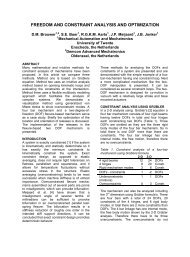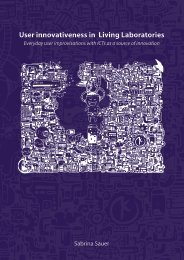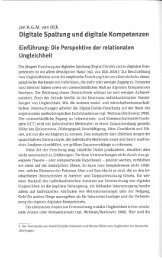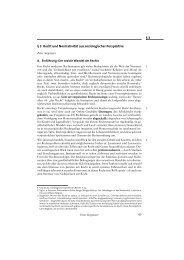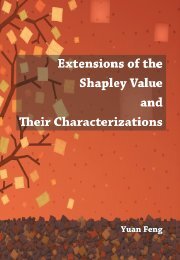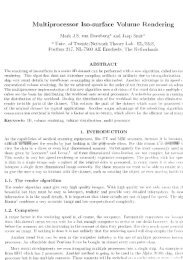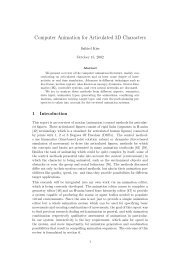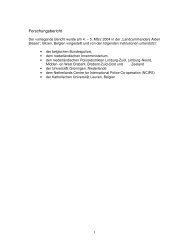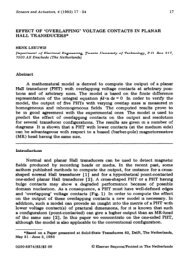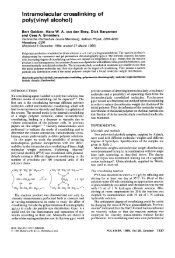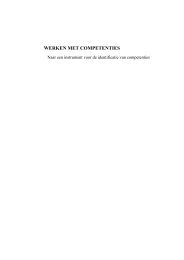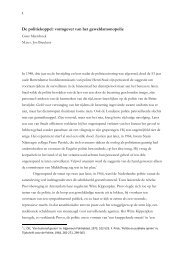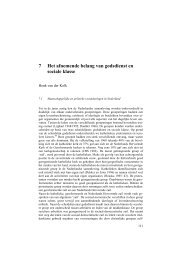Innovation and institutional change: the transition to a sustainable ...
Innovation and institutional change: the transition to a sustainable ...
Innovation and institutional change: the transition to a sustainable ...
Create successful ePaper yourself
Turn your PDF publications into a flip-book with our unique Google optimized e-Paper software.
Chapter 2<br />
Theoretical perspectives<br />
2.1 Introduction<br />
The objective of this dissertation is <strong>to</strong> analyse developments in <strong>the</strong> electricity<br />
system in order <strong>to</strong> underst<strong>and</strong> <strong>the</strong>ir potential contribution <strong>to</strong> fundamental<br />
<strong>change</strong> in <strong>the</strong> electricity system. In order <strong>to</strong> be able <strong>to</strong> assess <strong>the</strong> nature of<br />
<strong>change</strong>s in <strong>the</strong> electricity system <strong>and</strong> <strong>the</strong>ir driving forces, a first analytical<br />
step is <strong>to</strong> gain more insight in processes of systems <strong>change</strong> based on<br />
<strong>the</strong>oretical observations from o<strong>the</strong>r scholars. Therefore this chapter presents<br />
an overview of <strong>the</strong>oretical work relevant <strong>to</strong> <strong>the</strong> study of systems <strong>change</strong> <strong>and</strong><br />
focuses on <strong>the</strong> way different <strong>the</strong>oretical streams deal with <strong>the</strong> <strong>institutional</strong><br />
fac<strong>to</strong>r in fundamental <strong>change</strong>s of production <strong>and</strong> consumption systems (in<br />
short: systems <strong>change</strong>). The chapter is guided by <strong>the</strong> following research<br />
question:<br />
How do existing <strong>the</strong>ories underst<strong>and</strong> processes of systems <strong>change</strong>, <strong>the</strong><br />
interaction of technological <strong>and</strong> <strong>institutional</strong> <strong>change</strong> within <strong>the</strong>se processes,<br />
<strong>and</strong> <strong>the</strong> fac<strong>to</strong>rs that explain whe<strong>the</strong>r <strong>the</strong>se interactions reinforce or weaken<br />
<strong>the</strong> existing system?<br />
The issue is how <strong>to</strong> analyse fundamental <strong>change</strong>s in complex systems of<br />
production <strong>and</strong> consumption consisting of a range of ac<strong>to</strong>rs, linkages <strong>and</strong><br />
components. Our main premise is that fundamental <strong>change</strong> in a system of<br />
production <strong>and</strong> consumption such as <strong>the</strong> electricity system involves several<br />
<strong>change</strong> processes that occur both simultaneous <strong>and</strong> sequential, <strong>and</strong> at<br />
different levels of firms, users, sec<strong>to</strong>rs, governance systems, systems of<br />
innovation <strong>and</strong> society at large. The main challenge is <strong>to</strong> increase<br />
underst<strong>and</strong>ing in how <strong>change</strong> processes interlock <strong>and</strong> acquire a certain<br />
velocity <strong>and</strong> direction (or momentum as Hughes (1983) would say) <strong>to</strong>wards<br />
an alternative or new sociotechnical configuration. A fur<strong>the</strong>r challenge is <strong>to</strong><br />
gain underst<strong>and</strong>ing whe<strong>the</strong>r, when, where <strong>and</strong> how sustainability can be<br />
successfully incorporated in<strong>to</strong> those <strong>change</strong> processes. The purpose is <strong>to</strong><br />
11



